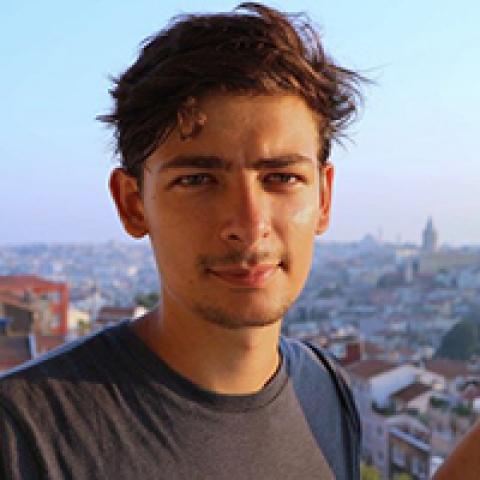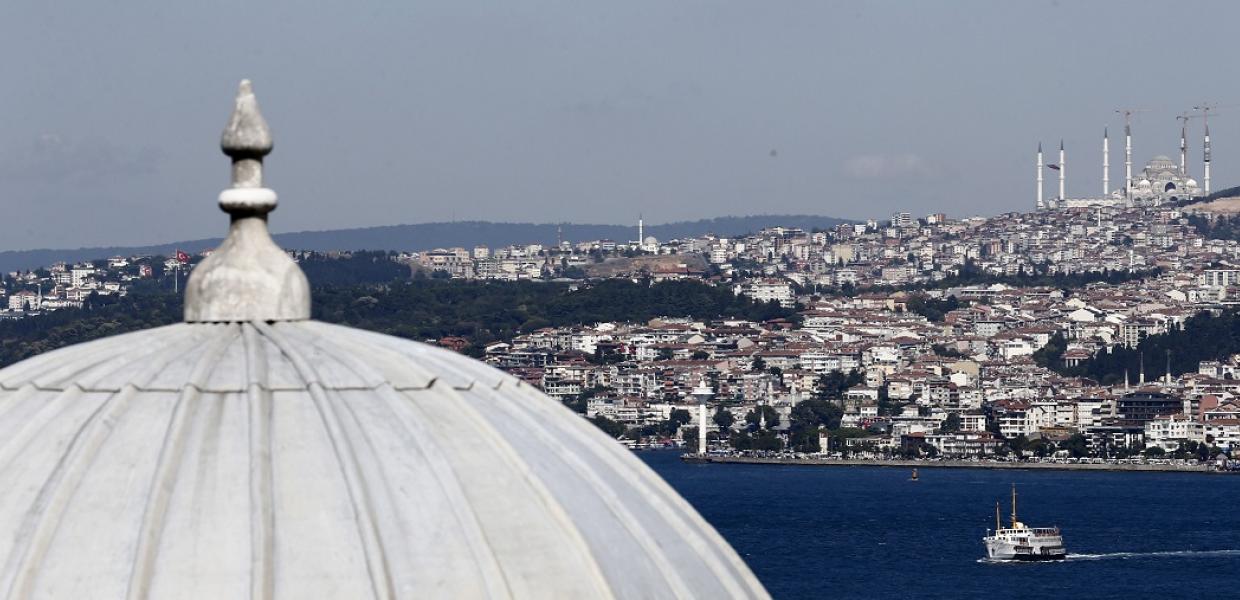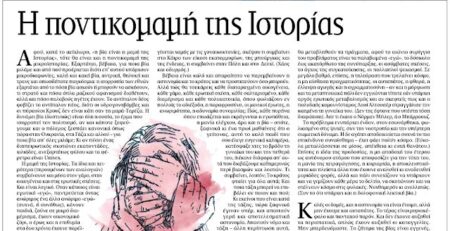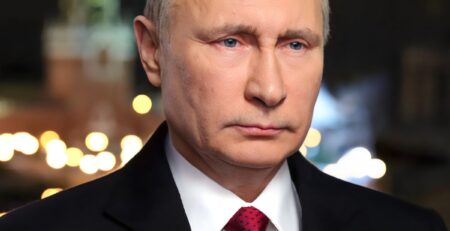Κωνσταντινούπολη, πατρίδα του νέου αραβικού κόσμου
“Μπορεί να φαίνεται παράδοξο το γεγονός ότι η Τουρκία του Προέδρου Ρετζέπ Ταγίπ Ερντογάν, την οποία η Δύση θεωρεί ότι γλιστράει στην απολυταρχία, αποτελεί καταφύγιο ελευθερίας για τόσους πολλούς Άραβες υπηκόους”, υποστηρίζει ο Killian Cogan σε άρθρο του στην “Le Monde diplomatique”

Η τουρκική κυβέρνηση, σημειώνει, ” φαίνεται να χρησιμοποιεί την αραβική διασπορά ως μοχλό τουρκικής επιρροής, κυρίως μέσω διαφόρων ενώσεων”. Ο ίδιος προσθέτει ότι σήμερα η Τουρκία φέρεται να αριθμεί μερικές εκατοντάδες χιλιάδες Ιρακινούς υπηκόους, περισσότερους από τριάντα χιλιάδες Αιγύπτιους, καθώς και πολλές δεκάδες χιλιάδες Λίβυους, Υεμενίτες, Παλαιστίνιους, Ιορδανούς, αλλά και Αλγερινούς, Μαροκινούς και Τυνήσιους, η πλειοψηφία των οποίων ζει στην πρώην οθωμανική πρωτεύουσα. Στους αντιφρονούντες, στους πρόσφυγες και στους μετανάστες αναμειγνύονται συγγραφείς, φοιτητές και απλοί τουρίστες. «Είναι το μόνο μέρος του κόσμου όπου εκπροσωπούνται τόσες αραβικές εθνικότητες», υπογραμμίζει η Νουράν Γκαντ, υποψήφια διδάκτορας του Ινστιτούτου Πολιτικών Επιστημών της Αιξ-αν-Προβάνς και μία από τους ελάχιστους ειδήμονες επί του θέματος.
*Διαβάστε το άρθρο σε αγγλική μετάφραση:
The perfect balance between Islam and Modernity?
Istanbul, home to the new Arab world
Turkey’s open-door policy to Arabs fleeing political turmoil has created a vibrant Arab culture in Istanbul. As President Erdoğan continues to assert himself on the international stage, has he hit upon the ultimate brand of soft power?

The Shabaka Al-Arabiyya (Arab network) bookshop in the heart of Istanbul’s Fatih district, has become the haunt of the city’s Arab intelligentsia. The shelves are full of Arabic literary classics by authors such as Mahmoud Darwich, Naguib Mahfouz and Nizar Qabbani, and calligraphy on the wall pays tribute to the Abbasid poet Al-Mutanabbi. Every week, expatriates and exiles from all walks of life meet here to discuss the fate of their respective homelands over coffee, and when I visited, a young Egyptian novelist was signing copies of his new book. The shop, opened in 2017 by a Saudi publisher Nawaf al-Qudaimi, gives some sense of the scale of Istanbul’s Arab diaspora.
Since 2011 the city has welcomed all those fleeing the Arab world’s uprisings. More than half a million Syrians have settled here since their war broke out (1), and Turkey is now home to several hundred thousand Iraqis, more than 30,000 Egyptians, tens of thousands of Libyans, Yemenis, Palestinians and Jordanians, as well as Algerians, Moroccans and Tunisians. Most live in Istanbul. Dissidents, refugees and migrants rub shoulders with writers, students and tourists. ‘It’s the only place in the world where there are so many Arab nationalities,’ says Nouran Gad, a postgraduate at Sciences Po Aix who studies the subject.
More diverse than Beirut or Cairo
‘Istanbul’s Arab communities are more diverse than Cairo’s and Beirut’s were,’ said Al-Qudaimi, who still owns a publishing house in the Lebanese capital. In the 1950s, Nasser’s Egypt was the epicentre of Arab cultural production, attracting singers and actors from the whole region. But as authoritarianism took hold, Beirut, with its unique freedom, replaced Cairo as the centre of Arab intellectual life. The region’s writers, artists and publishers frequented the cafés of West Beirut (2) for two decades, until the Lebanese civil war broke out in 1975.
The West’s closed to Iraqis. Lebanon grants visas, but is full of Hizbullah supporters who’re in league with our militias, I know members of the Iraqi government who have houses here. If the militias want to, they’ll find me easilyAhmed Saadawi
Despite recurrent political and social crises, Lebanon remains the undisputed centre of Arabic publishing but, said Al-Qudaimi, Istanbul is where its intellectuals now choose to live and create — figures like Jamal Khashoggi, the Saudi journalist and dissident killed at the Saudi consulate in Istanbul in October 2018 by Saudi crown prince Muhammad bin Salman’s henchmen. Although Khashoggi, whose family were of Turkish origin, had lived as an exile in the US since 2017, he regularly visited Istanbul and owned a flat there (3). He was ‘a long-time friend [and] often came into the bookshop,’ said Al-Qudaimi. Now he too is sought by the Saudi regime for ‘writing about a political scandal’; he has not seen his wife and children in over three years and is prohibited from entering Kuwait, Jordan, Egypt and Saudi Arabia.
It may seem paradoxical that President Recep Tayyip Erdoğan’s Turkey, which the West sees as sliding into autocracy, is a haven of freedom to so many Arab nationals. Everyone I asked about Turkey’s human rights violations and repression of journalists said it was out of the question to interfere in Turkish domestic politics. They mainly feel grateful to Erdoğan for the support his Justice and Development Party (AKP) gave to Arab activists in 2011, when the Arab Spring swept the region. Steered by foreign minister Ahmet Davutoğlu (later dismissed in disgrace), Turkey re-engaged with its former Ottoman lands, showing support for opposition movements, especially the Muslim Brotherhood.
When these movements failed and former despots returned, the Brotherhood retrenched in Istanbul, which is now its rear base. In Egypt, after Abdel Fattah al-Sissi’s coup in July 2013 and his harsh repression of the Egyptian Brotherhood, the movement regrouped in the Istanbul suburbs. In spring 2020, Yemen’s Al-Islah, which has close ties with the Brotherhood, appointed its new leader in Istanbul (4), and the Syrian Brotherhood, which opposes the Assad regime, takes its orders directly from the Turkish government (5).

Brotherhood’s TV channels
The Muslim Brotherhood has launched TV channels in Istanbul, mostly with links to Qatar, which has been Turkey’s ally since the 2017 Gulf crisis, when Saudi Arabia, the United Arab Emirates (UAE), Egypt and Bahrain severed diplomatic relations and imposed a blockade on Qatar. Turkey gave Qatar economic, diplomatic and military support, and allowed the Egyptian Brotherhood to keep working from Istanbul via the Mekameleen and Watan TV channels, while the Yemeni Brotherhood relied on broadcasts from Yemen Shabab.
Since early this year a cautious rapprochement has been under way between the Turkey-Qatar axis and the Egypt-Saudi Arabia-UAE bloc. Among Cairo’s demands for restoring diplomatic relations was that Turkey and Qatar end media criticism of Egypt and extradite Brotherhood officials. Both Turkey and Qatar have rejected these extradition calls, and Turkey has already naturalised a number of Egyptian exiles. However, in March the Turkish government signalled its desire for improved relations by asking Egyptian media in Istanbul to moderate their criticism of Sissi (6); some of their programmes have been taken off air and are now online only.
We have a lot in common with the Turks. Many Arabs choose to live here because, unlike in the West, there’s no post-colonial contemptEsraa Sheikh
Istanbul has around 15 Arabic TV channels, not all of them pro-Qatar or the Brotherhood. The opposition channel Televizyon Surya, for example, is linked to the Al-Araby Al-Jadeed (New Arab) network. The Palestinian politician and intellectual Azmi Bishara was the driving force behind this channel, launched in 2014 by a Qatari company to present a more liberal, progressive image of Qatar and challenge Al Jazeera’s pro-Brotherhood bias. There is also Belqees TV, the media outlet of Yemeni activist Tawakkol Karman, a vocal opponent of former Yemeni president Ali Abdullah Saleh and winner of the 2011 Nobel peace prize.
Five years ago Ayman Nour, the Egyptian dissident and founder of the liberal Al-Ghad party, left Beirut for Istanbul, where he now owns several TV channels. He said last November that ‘the Turkish state doesn’t get involved in the affairs of Arabs living in Turkey,’ but later admitted that the Turkish authorities had indeed interfered with his programming. The Turkish government is also seeking improved relations with Saudi Arabia. In April, Erdogan’s spokesman İbrahim Kalın said he ‘respected’ the Saudi courts’ ruling on the Khashoggi affair, marking a shift from Turkey’s accusations after his death. Does this signal a change of direction from Ankara? For several years, Turkey has been asserting itself in the region, to the point of crossing other states (including Egypt, Syria, Saudi Arabia and the UAE). It has intervened militarily in Libya, where it has supported the Tripoli-based Government of National Accord (GNA) against Marshal Khalifa Haftar’s forces. In Syria, Turkey supports the rebel groups fighting the Assad regime, and has de facto control of the north of the country, where the Turkish flag flies and its currency is in use.
The Turkish government seems to be using its resident Arab diaspora as a lever of Turkish influence, not least through various associations. The president of the Arab Media Union, with over 850 journalist members, is a Turk, Turan Kışlakçı, who is also director of the public news channel TRT Arabi, which was launched in 2010 to broadcast Turkey’s voice to the Arab world. Another organisation, the Union of Arab Communities, was founded in spring 2019 to ‘represent the Arab diaspora in Turkey’ by the pro-government Turkish journalist Metin Turan and his Libyan colleague Mustafa Tarhuni, who regards the Erdoğan government as the ‘defender of the world’s oppressed Muslims’ (7).
Turkey’s strategy of influence also includes higher education. Under a 2010 scheme, Turkey awards scholarships to foreign students, many from the Middle East and North Africa. Several Turkish universities, including Istanbul Sabahattin Zaim University, offer courses entirely in Arabic. The Turkish authorities also sponsor events such as Arab Book and Culture Days, organised under the aegis of the presidency for the past five years. Behind these initiatives, the name that keeps coming up is Yasin Aktay, an Arabic speaker, AKP member and close adviser to Erdoğan, who acts as go-between for Istanbul’s Arab circles and the government.
Attraction of the Ottoman past
Arab nationalism grew in opposition to Ottoman domination in the late 19th century, so what about the colonial legacy? ‘We have a lot in common with the Turks. Many Arabs choose to live here because there’s no post-colonial contempt, unlike in the West,’ says Esraa Sheikh, a Palestinian-Jordanian presenter for the London-based, pan-Arab broadcaster Al-Hiwar, which opened an Istanbul office a few years ago. In Sheikh’s revisionist view, ‘The Arab world has gained more [from the Turks] than it has lost, unlike what happened with European colonialism.’
The Ottoman past aroused no hostility in many people I interviewed, who saw it in terms of exotic imagery. This is the Ottoman world of the dizi, the Turkish television series whose popularity has eclipsed the old Egyptian and Syrian musalsalat (soaps) (8). Erdoğan is seen as embodying something of the same stature: a counterweight to the West and a defender of the Palestinians, long since abandoned by apathetic Arab potentates.
Turkey, through its economic development and international standing, is a source of pride for many Sunni Muslims, Arab or otherwise, a feeling which extends well beyond supporters of the Brotherhood. Rashid D, 60, a Tunisian on holiday in Istanbul, wanted to visit the Çamlıca mosque, a vast building with a capacity of 30,000 that opened in 2019. Rashid saw it a symbol of the Turkish miracle: ‘Just like the Ottoman mosques are the sultans’ legacy, in a few centuries this mosque will be remembered as Erdoğan’s.’
Not everyone in Istanbul’s Arabic community is quite so misty-eyed. Rather than a ‘Turkish Islamic dream’, the main draw is a high standard of living (for those with jobs), reasonably stable politics compared to the chaos elsewhere in the region, and the relative ease of obtaining a residence permit. Exile in Istanbul is often chosen by default. Apart from dissidents, refugees and journalists with some affinity to the AKP government, Istanbul takes in unfortunates of all kinds, Shia and Sunni, Islamist and atheist.
Novelist Ahmed Saadawi, author of the best-seller Frankenstein in Baghdad (Penguin, 2018), never wanted to leave his native Iraq. But he joined the protest movement that stormed Baghdad in October 2019, after which several of his fellow activists were arrested or killed by Shia militias. A source with inside information told him he was next on the list and Turkey seemed the obvious place to seek refuge: ‘The West’s closed to Iraqis. Lebanon grants visas, but it’s full of Hizbullah supporters who’re in league with our militias,’ Saadawi told me in a café on the Marmara. He admitted he was anxious and hoped to reach a safer destination: in Istanbul, the shadow of the Iraqi mukhabarat (intelligence services) is ever-present. ‘I know members of the Iraqi government who have houses here and regularly stay in Istanbul. The Turks open their door to everyone. If the militias want to, they’ll find me easily.’
Under a law introduced in 2018, anyone who buys a property worth over $250,000 qualifies for a Turkish passport, a boon for Iraqis, who were the biggest real estate investors in Turkey in 2019 and second biggest in 2020 after Iranians. The demand for property is also steady among wealthy Arab buyers from the Gulf and elsewhere. Some see this as a business opportunity. The real estate sector and medical tourism have turned Istanbul into a land of opportunity for some, where a smattering of Turkish makes it possible to act as an intermediary and earn fat commissions. Amir Z, 32, an Algerian wearing a gold chain, calls himself a ‘coordinator’ for both real estate buyers and clients seeking hair transplants, the main activity of hundreds of businesses in Istanbul. Although he says he earns ‘an honest living’, he admits there are many clandestine clinics full of ‘fake doctors and counterfeit diplomas’.

‘Iraqis don’t hire Moroccans’
Istanbul offers an unparalleled space for pan-Arab interaction. But chauvinism and regional rivalries often take over. Hamza T, 30, a Moroccan singer from Tangiers, knows this first-hand: he had dreams of a great career in Istanbul and for six months toured the city’s nightclubs and Arab weddings. Omar Souleyman, the famous Syrian singer of Kurdish origin, started out this way. But, he told me in a Yemeni restaurant in Taksim Square, ‘It’s not easy. Syrians and Iraqis don’t hire Moroccans.’ The Arab diaspora also experiences xenophobia from its hosts. Palestinians receive some sympathy, but Syrians face almost unanimous hostility (largely because of the huge influx of refugees in the past decade).
For many migrants, Turkey feels both familiar and permissive, which can lead to profound personal changes. Abdulaziz D, 25, looks nothing like an Islamist with his shoulder-length hair and striped top. Yet, less than two years ago, this easy-going Egyptian was extremely zealous. ‘I thought of the Brotherhood as my family,’ he said over a beer. His involvement with the organisation earned him a year in Sissi’s jails. In summer 2016 he was provisionally released while awaiting judgment and fled to Istanbul: ‘All my friends were here already.’
The Brotherhood found him accommodation and helped him financially. But the temptations of Istanbul were too much. Over time, Abdulaziz began drinking, smoking and dating, and gradually abandoned the movement. ‘I discovered myself in Istanbul. On one side, there are mosques; on the other, nightclubs. This atmosphere transformed me. Today, I don’t really know who I am any more. Many of us feel the same. The Egyptian Brothers who came here have changed. This city alters your perspective.’
Meanwhile in Cairo his relatives still watch the Brotherhood’s broadcasts from Istanbul. Abdulaziz has launched a tourist agency to cater for his compatriots ‘who fantasise over the TV series’. After being refused visas by the Netherlands and Canada, he’s resigned to staying, although now, like others in the Egyptian community, he’s afraid he will suffer under the Turkish-Egyptian rapprochement and won’t have his residence permit renewed or his application for naturalisation accepted. It may seem to be thriving, but Istanbul’s Arab diaspora remains vulnerable to subtle geopolitical shifts.
Istanbul also attracts many European nationals of North African origin. In Brussels’ drizzle, Belgian-Moroccan maths student Yasmine G, 22, dreams of moving there. For now, she’s buying Turkish language textbooks and, after graduation, will ‘go for a year, to try it’. Although being a Muslim in Belgium can be challenging, she would never ‘disown the western part [of herself]’. And, unlike in Morocco, ‘where you’re oppressed by the weight of judgment’, she feels Turkey may offer the perfect balance between Islam and modernity.
Like many people from North Africa or the Middle East, she was entranced by the dizi and their stars, such as Kivanç Tatlıtuğ and Burak Özçivit. As well as the television series, she also likes the world of Instagram stars and the ‘Muslim chic’ trend, which showcases Islamic fashion against the backdrop of the Bosphorus. One of them, Instagram star ‘Assiatique’, a Bordeaux native of Turkish-Moroccan origin who’s a student in Istanbul, has over 120,000 followers. Another sign that Turkey is increasingly popular among Europeans of North African origin is that the French-speaking rappers Soolking and L’Algérino sometimes sing in Turkish.
For some EU citizens of North African origin, Turkey may make up for the disillusionment after failed attempts to settle in Dubai, Abu Dhabi and Doha. ‘My husband and I went to Qatar ten years ago,’ says Myriam Q, 33, French of Algerian origin. ‘But we didn’t have the necessary qualifications to compete with foreign workers. We didn’t earn enough.’ Now she plans to move to Istanbul to ‘open a textile import-export company’.
Booming ‘Islamic tourism’
Others, such as Mourad Ghazli, have already taken the plunge. Ghazli, a Franco-Algerian politician, belonged to Jacques Chirac’s Rally for the Republic (RPR), the Union for a Popular Movement (UMP) and the Union of Democrats and Independents (UDI) until his expulsion in 2016. A year later, he came to the seaside town of Alanya, where he now works in ‘Islamic tourism’. This booming sector, also known as ‘halal tourism’, increasingly appeals to European Muslims: there are mosques and, even better, the sexes are segregated on the beach and at the pool.
Ghazli lavishes praise on the Turkish president on social media. Erdoğan is as popular with Europeans of North African origin as he is across the Arab world. ‘Turkey’s the only Muslim country that makes its voice heard against the West. As a Muslim, I admire it,’ says Selma Ajam, 29, a Franco-Algerian whose father is a muezzin at the mosque in Valence. Ajam, a pro-Palestinian activist, now lives in Istanbul and has recently given interviews to Turkish pro-government media. ‘In France, my headscarf’s a problem. That’s why I left. Here, I have the impression that everything’s possible,’ she says. She plans to enrol her young daughter in a Turkish school.
For the Turkish government, stories like hers are welcome. In addition to posing as champion of the Palestinian cause, Turkey’s strongman has also profited from the fight against Islamophobia, criticising the fate of ‘oppressed Muslim minorities in Europe’. For several years, the Turkish government has organised forums and debates on Islamophobia and has tried to advance this agenda in international bodies such as the Organisation for Security and Cooperation in Europe (OSCE), the Council of Europe and Unesco. Since 2015, the pro-government think tank SETA has published a ‘European Islamophobia Report’, cataloguing anti-Muslim racism in several European countries.
Could Turkey become a refuge for Muslims who have had enough of Europe? After the French authorities announced the disbanding of the allegedly Salafist NGO BarakaCity in November 2020, its president Idriss Sihamedi asked Erdoğan for political asylum on Twitter, though he later called these ‘clumsy tweets’. In May 2021 BarakaCity relocated its humanitarian operations to Turkey. The Facebook group Emigrating to Turkey was set up in October 2020 by David Bizet, also known as Davut Paşa, a French convert to Islam and zealous Erdoğan supporter. It calls itself a ‘Franco-Muslim mutual aid’ group intended for those ‘who aspire to resettle [in Turkey] in order to practise Islam in peace’. It has nearly 2,000 members.
For all that, the situation in Turkey remains uncertain, unlike in Qatar and the UAE, whose oil and gas bounty and need for foreign labour made them genuine lands of opportunity. Apart from digital nomads, EU citizens of North African descent in search of an identity who want to settle there permanently will eventually have to confront the political realities of a country experiencing economic and political difficulties.
***********************************
(1) See Ariane Bonzon, ‘Tensions in Turkey over its Syrian guests’, Le Monde diplomatique, English edition, May 2020.
(2) See Robyn Creswell, City of Beginnings: Poetic Modernism in Beirut, Princeton University Press, Oxford and Princeton, 2019.
(3) See Bryan Fogel’s documentary The Dissident, 2020.
(4) Mohanad Hage Ali, ‘Exiles on the Bosphorus’, Carnegie Middle East Center, Beirut, 10 March 2020.
(5) Amberin Zaman and Dan Wilkofsky, ‘For Syria’s opposition activists, Turkey “best of the bad”’, Al-Monitor, 10 September 2020.
(6) ‘Turkey asks Egyptian media to limit criticism: TV channel owner’, Al Jazeera, 19 March 2021.
(7) Haberler.com, 1 February 2020 (in Turkish).
(8) See Timour Muhidine, ‘Turkey onscreen’, Le Monde diplomatique, English edition, July 2018, and Jana Jabbour, ‘An illusionary power of seduction?’, European Journal of Turkish Studies, vol 21, 2015.
*Τα ενυπόγραφα κείμενα απηχούν τις απόψεις των συγγραφέων τους




